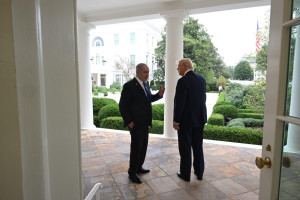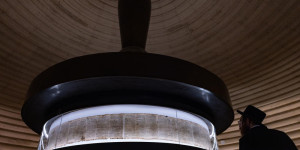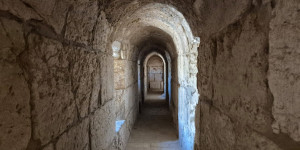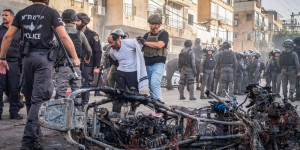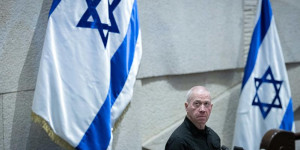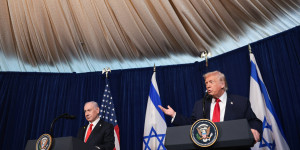Is Trump’s 20-point plan to end Gaza War a viable solution or recipe for continued violence?

Following the release of some details regarding U.S. President Donald Trump’s 20-point plan to end the Gaza war, reactions in Israel have been mixed.
The initial reaction in Israel among many was positive, as demonstrated by a rise in the Tel Aviv Stock Exchange.
President Trump appeared to be building up hype for the proposal himself with a post to Truth Social on Sunday, which said, “We have a real chance for GREATNESS IN THE MIDDLE EAST. ALL ARE ON BOARD FOR SOMETHING SPECIAL, FIRST TIME EVER. WE WILL GET IT DONE!!! President DJT.”
The U.S. has been seeking a breakthrough proposal which could bring both Israel and the Arab states to an agreement, ending the almost two-year-long conflict in Gaza, which has been costly for Israel in political, diplomatic, and economic terms, and devastating for the population of the Gaza Strip, with over 75 percent of all structures in the enclave destroyed over the months of near constant combat.
However, despite the desire of most Israelis and Palestinians to see the war end, the leaked details of the proposal, and even the full text released on Monday, have caused some concern among Israeli leaders and officials.
The plan appears to be a compromise proposal, intended to meet several of Israel’s demands for the end of the war, while providing Hamas with a way to escape a drawn-out guerrilla war, which would likely see most of the remaining fighters in Gaza killed over the next six months, if IDF Chief of Staff Lt. Gen. Eyal Zamir’s estimates for the length of Operation Gideon’s Chariots II are correct.
A peremptory reading of the plan raises several immediate questions.
It says that Gaza will be demilitarized and deradicalized.
It also says all the hostages, living and dead, will be returned within 72 hours of Israel publicly accepting the deal, after which, several hundred Palestinian security prisoners and 1,700 Gazans detained since the start of the war will be released.
The plan states that Gaza will be administered by a transitional government, which will be supervised by an international body led by the U.S., along with European and Arab “partners.”
It speaks of a security guarantee by “regional partners” to prevent Hamas and other Palestinian factions from posing a threat to Israel, while also calling for an international peacekeeping force, called the International Stabilization Force (ISF), to oversee security in the Gaza Strip.
The plan states that Israel will not annex or occupy Gaza; with the IDF gradually vacating the currently held territory to the security force.
The plan clearly envisions a future Palestinian Authority takeover of the Gaza Strip, dependent upon reforms, leading to a pathway for a Palestinian state.
Those points, which many Israelis and some Palestinians would agree with, are surprisingly vague on specifics, and as the old adage goes, “the devil is in the details.”
After reading through the proposal, I have identified several outstanding issues with the points laid out and proposed several ideas for correcting the proposal.
The Hostages
While the plan calls for the release of all remaining Israeli hostages within 72 hours of Israel publicly accepting the plan, there is no means of enforcement. Hamas does not hold all of the hostages, and the terror group has recently claimed that it lost contact with two of them.
While the group has previously lied about losing contact with hostages or claimed that hostages were killed by Israeli airstrikes, only to release them later, the terror group has also demonstrated its willingness to kill hostages in cold blood. What is to prevent Hamas from killing more of the hostages if there is no incentive to keep them alive? Hamas knows that once it hands over the hostages, it no longer possesses any leverage over Israel.
Reconstruction
The problem is not the reconstruction of the Gaza Strip itself, which, despite comments by some Israeli leaders, is actually desirable. The proposed reconstruction is problematic because it is not tied to Israel’s security concerns.
Israel’s security cannot be guaranteed by anyone but Israel. However, the external “parties” to the reconstruction deal simply have no real interest in Israel’s security. If the reconstruction is started immediately, it takes away any leverage Israel might have if the “reforms” called for by the plan, both of the PA and the de-radicalization program of the Gaza population, don’t materialize.
If the Muslim nations, which have historically demonstrated virtually no interest in Israel’s security, but have consistently given money to the Palestinians, even when faced with clear evidence that the money is going to corruption and terror, are put in charge of reconstruction of the Gaza Strip, and if Israel has no say over that, the Gaza Strip could very quickly turn back into a terror base for Hamas.
Therefore, the beginning of any large-scale reconstruction projects, beyond the reestablishment of water, sewage, and medical facilities, must be conditioned upon several points, such as a recognition of Israel as the “Jewish State” along with a renouncing of the Palestinian “right of return” to Israel, and the implementation of drastic educational reforms.
In a related matter to reconstruction, some territory from Gaza, not from Israel, must be dedicated as a security zone, a no-man’s land, with sensors for above and below ground activity. At the same time, Israel must maintain a security presence along the Gaza-Egypt border to ensure that weapons are not smuggled in.
Education, UNRWA, and Refugees
The whole issue of refugees and inheritable refugee status for anyone remaining in Gaza must be ended, with UNRWA being disbanded and prevented from working in any of the Palestinian Territories. Along with this, Israel must demand a role in shaping and implementing the “de-radicalization program,” especially in education. Previous educational curricula, often provided and approved by UNRWA, contain high levels of incitement, while also denying the legitimacy of Israel or even a Jewish homeland.
Future curriculum must include a clear reference to the archaeological evidence for Jewish and Israelite presence in the land going back over 3,000 years. It must also demonstrate the legal foundation that was laid for the modern state of Israel before, during, and after the British Mandate period, which gives Israel the same legitimacy as any other nation created by the “Great Powers” after World War I, such as Jordan, Iraq, Syria, Lebanon, and the Kingdom of Saudi Arabia.
Disarming and Exiling Hamas
The plan has no clear guidelines for how Hamas will be disarmed or who will enforce that disarmament. With Hamas recently refusing to disarm voluntarily, this would mean that the International Stabilization Force (ISF) would also not likely be installed, or would end up being as useless as the United Nations Interim Force in Lebanon (UNIFIL), which has demonstrated itself to be unwilling or unable to prevent the buildup of weapons by Hezbollah in southern Lebanon over the past few decades.
The situation in Gaza could quickly end up similar to that in Lebanon, with a paramilitary force stronger than the local government able to enforce its own policies on the situation. Thus, any agreement must involve Israeli monitoring, and the ability for Israeli military action, along with international action, in the form of sanctions or other similar measures, to guarantee true demilitarization.
Hamas leaders should not be able to remain in Gaza, as the plan allows, nor any of the security prisoners released in exchange for the hostages. The Arab nation’s push for the proposal must demonstrate the necessary fortitude by finding a home for them, while ensuring that they do not engage in terror activities again.
International peacekeeping force & problematic partners
International peacekeeping forces have never successfully prevented conflicts, for the simple reason that the soldiers in such forces don’t want to die trying to prevent two sides from killing each other. Invariably, the peacekeeping force will end up favoring one side over the other, and the demonstrable antisemitic history of many of the Muslim nations participating does not favor such a force taking Israel’s side.
Israel must also retain the ability to carry out security operations against developing terror threats for the first few years, with some form of penalty on the interim government, if it does not address the concerns that Israel raises, thus necessitating Israeli military action.
The plan is also to give both Qatar and Egypt a place at the table in the reconstruction efforts in Gaza. However, both nations have repeatedly ignored or excused the worst atrocities of Hamas against Israel, while being unwilling to change their own relationships with the terror group. Including these nations in the post-war reconstruction is unwise.
The Palestinian Authority
The plan calls for a “reform” of the Palestinian Authority, but the details of that reform are not clear. PA President Mahmoud Abbas has been promising various reforms and elections for the last 15 years of his four-year term as president. (Abbas was elected in 2005 to a four-year term, but has never held elections since.)
Not only are the reforms not specified, but the enforcement mechanism is equally unspecified. The PA recently claimed to have carried out one such reform, scrapping its “pay-for-slay” program. However, shortly after the announcement, it became clear that the PA had not stopped the payments but simply renamed them and paid them through a third party.
Recent videos show Abbas vowing that if the PA had only one dollar left in its budget, it would pay it to the “families of the martyrs” first. Clearly, not only is much reform needed, but there is little reason to believe it will happen without some drastic incentives.
Israel needs to have some form of intelligence-based veto on the installation of proposed technocrats into the transitional government.
If a handover to the PA is forced upon Israel, then Hamas and the other terror factions know that they only need to bide their time until they can once again seize control of the territory from the PA, as they did in 2007.
Related to this, the agreement cannot force a Palestinian state west of the Jordan River upon Israel. It could be that if all the reforms in the PA and in the educational curriculum are achieved, Israel and the Palestinians will find it much easier to negotiate the terms of such a state, but if a state is imposed on Israel, the development of a terror state there is practically guaranteed.
Conclusion
Finally, even if both Israel and Hamas agree in principle to the proposal, and President Trump announces a finalized deal this week, a ceasefire in Gaza is still several days away. The proposed plan is sufficiently vague that Israeli or Hamas intransigence could easily scupper the deal before it comes into force.
While Trump had some means of imposing a ceasefire on both Israel and Iran in their conflict, Hamas has demonstrated that it does not pay much attention to Trump’s threats against it, as they rarely contain any teeth. Hamas also knows that Israel stands more to gain from this proposal than it does. Thus, Hamas has the most reason to blow up the deal through tough demands or outright rejection.
Thus, until any deal is confirmed, Israel must remain firm in its operation to take over Gaza City, imposing further losses on Hamas, in the hopes of convincing the group that survival is the only incentive it has left.

J. Micah Hancock is a current Master’s student at the Hebrew University, pursuing a degree in Jewish History. Previously, he studied Biblical studies and journalism in his B.A. in the United States. He joined All Israel News as a reporter in 2022, and currently lives near Jerusalem with his wife and children.
You might also like to read this:


